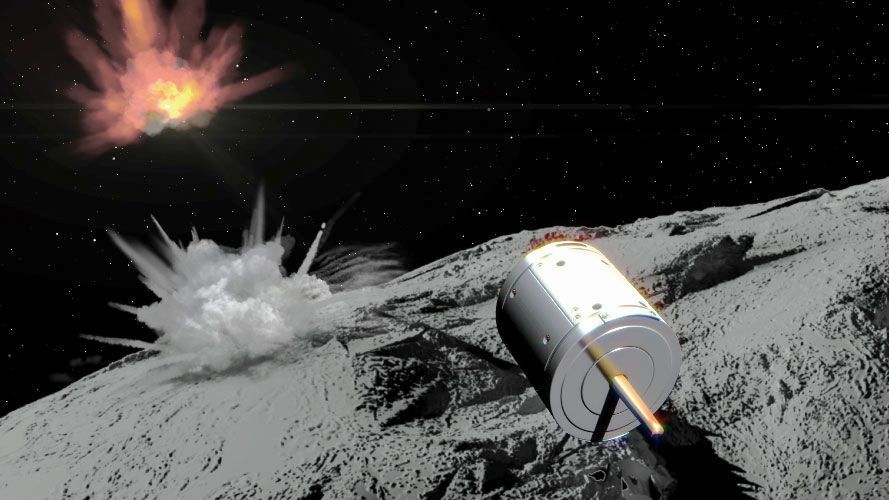The mission’s objective is to collect samples both from Ryugu’s surface and its interior and return them to Earth for analyses that should yield information on the materials that existed in the early solar system and give clues about the formation and evolution of planets. The samples might also provide evidence for the theory that asteroids and comets are one source of Earth’s water and its amino acids, the building blocks of life. Scientists are particularly eager to get material from beneath the surface that has not been affected by eons of space weathering.
In February, Hayabusa2 briefly landed on Ryugu and fired a tantalum pellet into the surface that likely knocked about 10 grams of rock fragments into a collection horn. Getting subsurface material is more of a challenge. Landing on and drilling into the asteroid was logistically impractical, mission planners concluded. They also rejected using explosives to blast a crater, as that would contaminate the samples. They settled on shooting a nonexplosive, 2-kilogram copper projectile into Ryugu from space, by detonating explosives on a tiny, 14-kilogram spacecraft dubbed the Small Carry-on Impactor (SCI).
Earlier today, Hayabusa2 descended to 500 meters above the asteroid and released the SCI. The mothership moved away laterally and about 19 minutes later released another tiny satellite carrying two cameras to record the projectile’s impact. The craft then continued to the far side of Ryugu to be shielded from any debris from the SCI explosion and from the crater.
